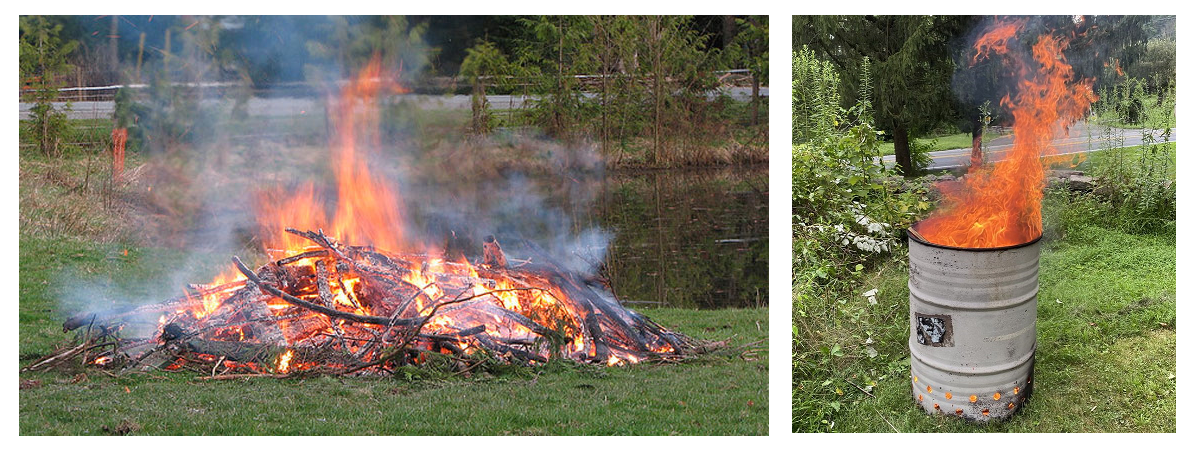Opening Burning in North Carolina

What is Open Burning?
Open burning refers to different types of controlled outdoor fires, such as small residential fires to burn yard waste or commercial land-clearing fires. In North Carolina, state law limits what can be burned outdoors, and when. North Carolina law prohibits burning trash and non-vegetative materials. Leaves, branches and other plant growth can be burned under certain conditions. The N.C. Division of Air Quality enforces the state open burning rules and many local governments have additional restrictions on outdoor fires. Violating these rules can be expensive -- with fines as high as $25,000 or more for serious cases or repeat violations.
What can be burned?
Homeowners can burn yard trimmings if it’s allowed under local ordinances, no public pickup is available and it doesn’t cause a public nuisance. Yard waste must not include logs more than 6 inches in diameter and stumps. Other allowable burning includes campfires, outdoor barbecues and bonfires for festive occasions. One of the most important open burning rules is: If it doesn’t grow, don’t burn it. It is ALWAYS illegal to burn trash, construction materials or anything man-made and non-vegetative. Landowners or contractors can burn vegetation to clear land or rights-of-way, provided that:
- Burning is done on the site of origin.
- Prevailing winds are away from built-up areas and roads. If winds are blowing towards public roads, fires must be at least 250 feet away.
- Fires are at least 500 feet away from occupied buildings.
- Burning is done between 8 a.m. and 6 p.m., and nothing is added outside of these hours.
You may need a permit from the N.C. Forest Service or local government authority having jurisdiction where you live, even for allowable purposes. Assure you check with your town, city or county government to find out if a permit is required. However, such permits do not excuse a person from following the DAQ’s openburning rules.
Do not burn the following items:
- Trash / Garbage
- Metal, including wire
- Building materials, or processed wood including lumber and wood scraps
- Wire, Plastics or synthetic materials
- Newspaper, cardboard or paper
- Untreated dimensional lumber
- Tires and other rubber products
- Heavy oils
- Asphalt shingles
- Paints and household or agricultural chemicals
- Buildings, including outbuildings and mobile homes
You should ONLY burn these items:
- Leaves
- Limbs
- Brush
- Firewood
- Natural vegetation from your own yard
- Logs, stumps, limbs and other natural vegetation as part of land clearing
- Yard waste must originate at a private residence and be burned on that site. In other words, residents can only burn vegetation from their own yard — not yard waste from other homes or locations — and only if it is allowed under local ordinances and only if public pickup is not available.
You can read more information from the NC Dept. of Environment & Natural Resources Division of Air Quality about open burning by clicking below.
